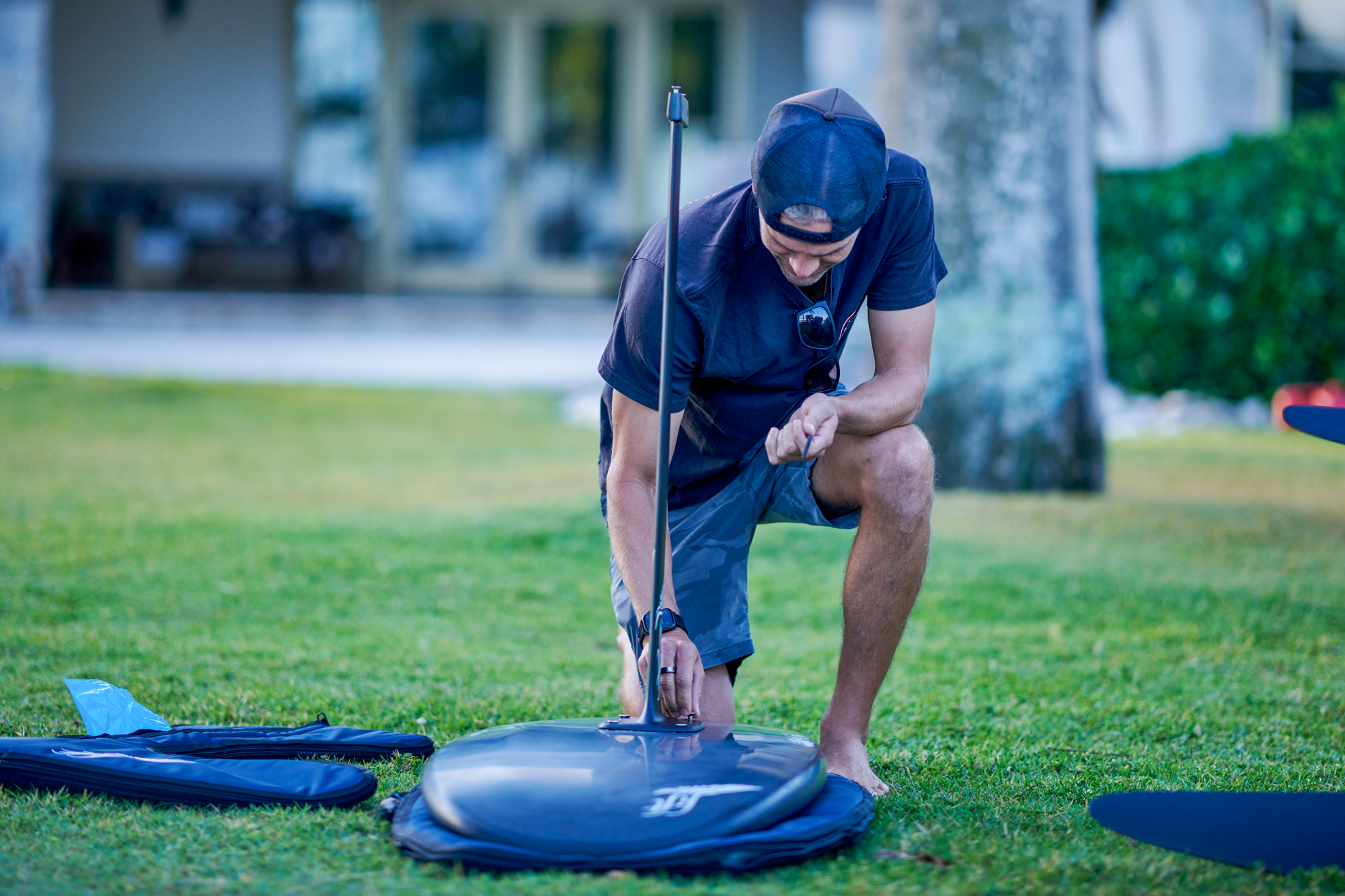
About a week ago, I was doing a daily analytics check-in on our client projects and saw a significant spike in traffic for one of our clients, a hydro-electric surfboard brand that sells a luxury product for over $10k to watersport’s enthusiasts, with about a 3-4 month average wait time. Curious what spiked the traffic, I looked at analytics but nothing jumped out— no referrals from new PR, no big social media spikes from influencer shares. Instead, I saw a high volume of organic search. As anyone who knows me knows, I take SEO super seriously, since we started working with this brand, we’ve crept onto page one for electric surfboard and foil surfboard, and have the first spot on electric hydrofoil, efoil, and all the electric derivations. Often what prompts organic search hits is television, viewers see something on TV and “second screen” to find it online. I assumed that one of the influencers that has the board had a TV run, or one of the videos we’ve done had gotten syndicated. This was all completely wrong. Pretty soon the social team was reporting messages from our customers asking why our boards were on sale for $200. For reference, they cost $12000. They wouldn’t be on sale for $11,000 with our three month back order, not to mention a fraction. That’s when we started to get screenshots and see the culprits. Organized Chinese knockoffs using our video footage and photos (with carefully photoshopped off logos), to run giant Facebook and Instagram ad campaigns.

I’m not exaggerating when I say giant. To date I’ve seen more than 30 promoted videos across both media streams, with each one having views in the millions. And they’re not targeting cheap traffic, they’re hitting the mainstream. This all wasn’t coming from one store, it was coming from more than ten, all with strange names like Bingodone, Furstylish, Saletu.buy, 2upetstore.com, Amanda’s shop, 3Car-store, 2sbest.myshopify, Onlyaever, Worth It Boutique etc. If you click through to the actual account pages, they are a wealth of comments and reviews that say SCAM, and tons of videos of other knockoff products. Click to the store, same thing, with screenshots of all the “Payment protected”, “moneyback guarantee” shots. They even have “powered by Shopify” at the bottom. When I went to report the pages to my contacts at Shopify, I found out even some of those are fake, just another thing to convince a sale. These pages were offering our client’s $12,000 product for $2000, marked down to $200. And from the comments, people we’re certainly buying. I’d dealt with fraud before, en-masse, so we knew the actions. Report the posts. Report the stores. Post on social to let people know it was a scam. Update support tickets and auto-responses to say “yes we are aware there is a scam” and ask folks to report. File DMCA takedowns on all of the videos. Pull domain information for legal. Update popups etc on the website to at least take advantage of traffic to pull in some emails.
 But the tough part is… this happens every day, there’s no recourse. We submitted hundreds of reports to Facebook that the ad was a scam, every report came back and said that it found the content didn’t violate Facebook’s rules. There’s tons of companies in this position, we saw hundreds of spoofs of “viral” products. But with so many accounts, and so many posts, its a hard game to get in front of, even with our organized action, all the campaigns are still running, and people are being scammed. In this article from Racked, you can even dive into the economics of how it effects small businesses: https://www.racked.com/2017/12/13/16762872/scam-sites-facebook-shopify Facebook and the companies in its portfolio have willfully given themselves over to advertising dollars above their users experience, such as we’ve seen countless times, but which hasn’t changed the networks power (and indeed, we would never consider not using the platform on our projects). Doing basic CPM calculations we calculated that these ads have cost well into six figures (which the company is certainly making back in scam profits), which is more important to Facebook’s teams in the grand scheme of things that our client and the few hundred they’ve spent on ads. It’s all a business, and they’re in the business of not letting you talk to a person, and not reviewing things with any level of sincerity, and you can find dozens of stories just like this from companies all over. Just another day selling things on the internet.
But the tough part is… this happens every day, there’s no recourse. We submitted hundreds of reports to Facebook that the ad was a scam, every report came back and said that it found the content didn’t violate Facebook’s rules. There’s tons of companies in this position, we saw hundreds of spoofs of “viral” products. But with so many accounts, and so many posts, its a hard game to get in front of, even with our organized action, all the campaigns are still running, and people are being scammed. In this article from Racked, you can even dive into the economics of how it effects small businesses: https://www.racked.com/2017/12/13/16762872/scam-sites-facebook-shopify Facebook and the companies in its portfolio have willfully given themselves over to advertising dollars above their users experience, such as we’ve seen countless times, but which hasn’t changed the networks power (and indeed, we would never consider not using the platform on our projects). Doing basic CPM calculations we calculated that these ads have cost well into six figures (which the company is certainly making back in scam profits), which is more important to Facebook’s teams in the grand scheme of things that our client and the few hundred they’ve spent on ads. It’s all a business, and they’re in the business of not letting you talk to a person, and not reviewing things with any level of sincerity, and you can find dozens of stories just like this from companies all over. Just another day selling things on the internet.